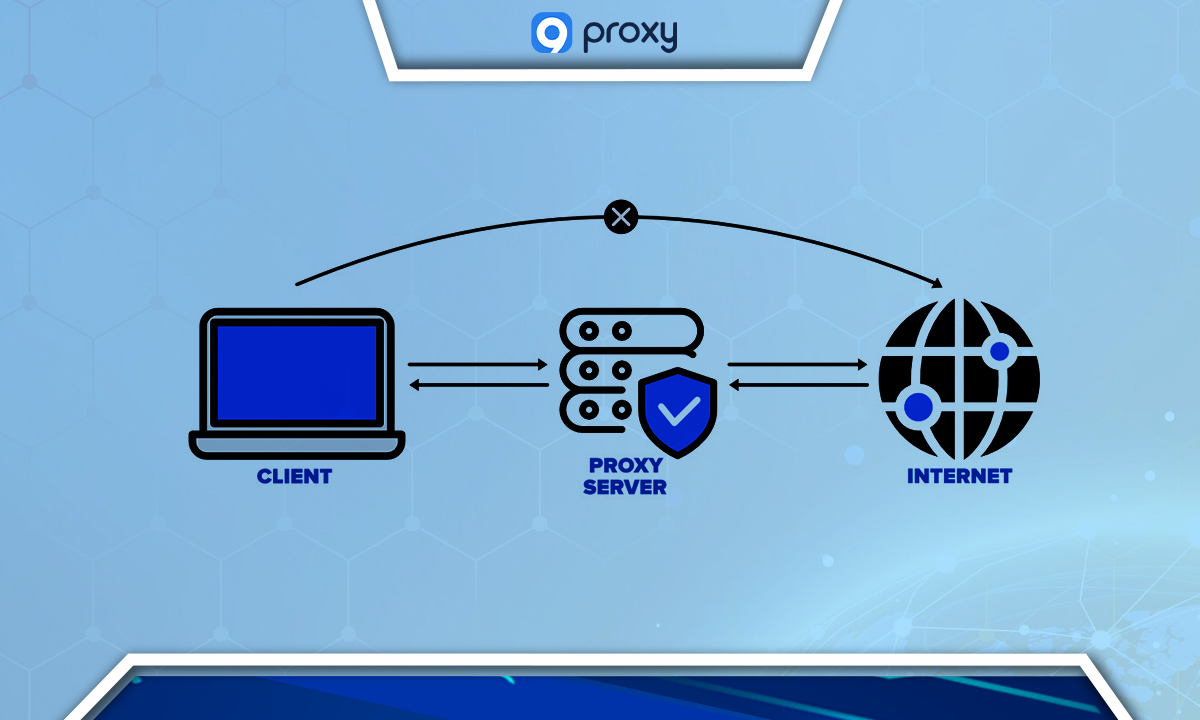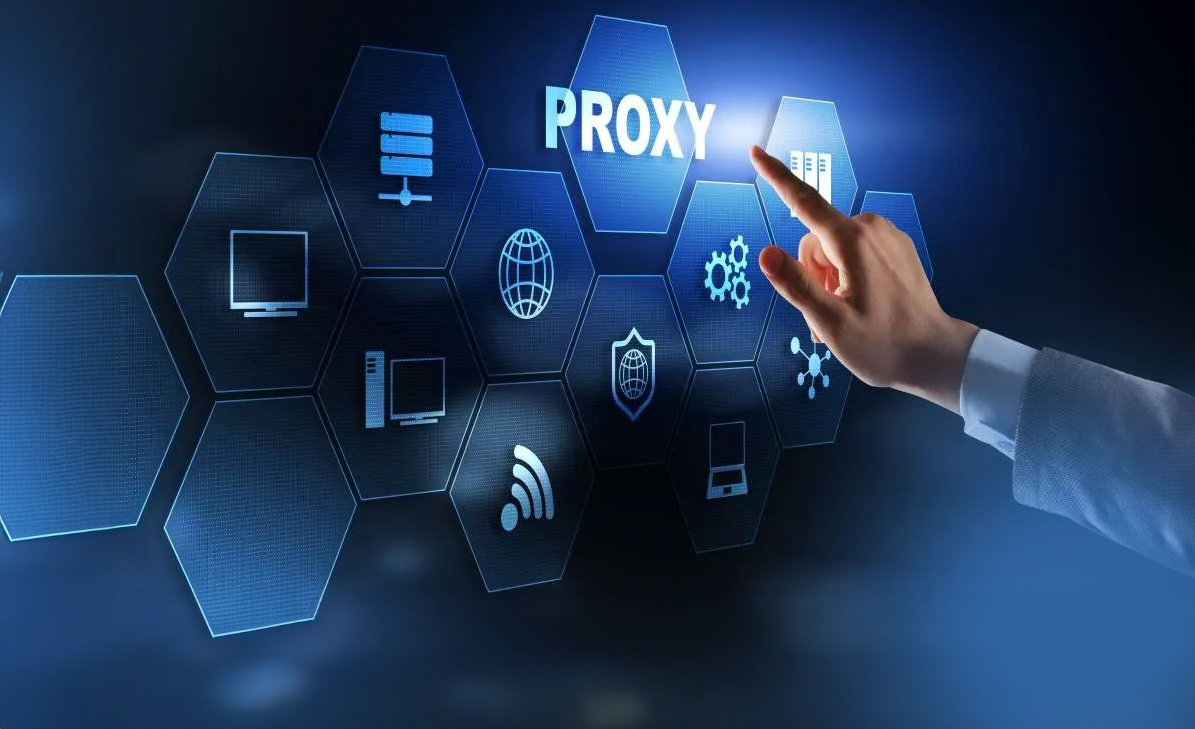Is It Legal to Use Proxies? Exploring Risks and Best Practices
The online world is filled with concerns about privacy, security, and legality, leading many to question, "Is it legal to use proxies?" This blog serves as your ultimate guide, offering clear and comprehensive insights into the legal aspects, risks, and necessary precautions associated with using proxy servers.
Overview of Proxy Server
A proxy server is a digital intermediary that facilitates communication between a user's computer and the internet. When you connect to the internet, your computer uses a unique identifier known as an IP address, similar to a street address, which directs incoming and outgoing data.
A proxy server has its own IP address and functions as a middleman, relaying requests from user computers to the internet. This acts as a protective barrier, safeguarding private networks from potential cyber threats.
Functions of a Proxy Server
- Firewall and Filter: Proxy servers can block access to certain websites or content based on predetermined criteria, enhancing security and compliance.
- Shared Network Connections: They allow multiple computers to connect to the internet using the same IP address, streamlining network efficiency.
- Data Caching: By storing frequently accessed data, proxy servers can speed up web page loading times.
- Logging Interactions: Recording interactions can assist with troubleshooting and maintaining network health.
Usage in Different Contexts
- Enterprise: In a professional setting, proxy servers are vital for enforcing security protocols, providing administrative control, and optimizing data delivery.
- Personal Computing: Individuals may use proxy servers to maintain privacy and engage in anonymous web surfing.
- Monitoring Traffic: Conversely, some might utilize proxy servers to keep tabs on user activity and compromise privacy.

The Legality of Proxy Servers
Proxy servers are proxies legal, and they can be used for various legitimate purposes. These include enhancing online privacy, accessing geographically restricted content, and optimizing network performance. However, like any tool, the legality of proxy servers depends largely on how they are utilized.
Engaging in illegal activities such as hacking, unauthorized file sharing, or circumventing network restrictions in violation of terms of service can make the use of a proxy server illegal. Are proxies illegal in such cases? Yes, they are. It is crucial for users to understand that employing a proxy server does not shield them from the laws of their country or exempt them from adhering to the rules and regulations of the online services they access.
Therefore, while proxy servers are legal in themselves, it is the responsibility of the user to ensure their usage complies with all applicable laws and terms of service agreements.
Legal Uses of Proxies
In various settings, the utilization of proxy servers is vital for maintaining security, privacy, and efficiency. Particularly in business-to-business (B2B) operations and individual users.
Business-to-business (B2B) Operations
Proxy servers are integral in facilitating secure and efficient business activities in the B2B domain. Here are some of the legal applications of proxies in B2B operations:
Enhancing Security:
Proxies serve as intermediaries, masking the corporate IP address and shielding the company's network from potential cyber threats.
Improving Performance:
By caching frequently accessed web content, proxies minimize bandwidth usage and expedite access to online services and websites.
Accessing Geo-restricted Content:
Proxies enable businesses to access region-specific content or services that may not be available in their locality.
Supporting Remote Work:
They facilitate secure connections for employees working remotely, ensuring they have access to essential resources while maintaining productivity.
Protecting Privacy:
Proxies assist businesses in safeguarding sensitive information through IP address masking and data encryption.
Individual Users
Proxies are not just beneficial for B2B operations; individual users can also leverage them for various legitimate purposes:
Accessing International Content:
Users can employ proxies to stream online content exclusive to certain countries, broadening their entertainment options.
Preserving Personal Privacy:
Proxies provide a layer of anonymity, preventing websites and advertisers from tracking users' online activities.
Overcoming Internet Censorship:
In regions with restricted internet access, proxies can be used to navigate around website blocks, ensuring freedom of information and communication.
Illegal or Unethical Uses of Proxies
While proxy servers can be instrumental in enhancing security, privacy, and access to content, they can also be exploited for malicious activities. Here are some examples of how proxies can be misused:
Hacking:
Proxies can conceal a hacker's identity and activities, making it challenging to trace them back to their origins.
Illegal File Sharing:
They can be used to download or distribute copyrighted content without proper authorization, which is against the law in many jurisdictions.
Bypassing Network Restrictions:
Proxies can be employed to circumvent network restrictions imposed by schools, workplaces, or other entities, which may violate terms of service agreements.
Cybercrime:
Proxies can be utilized for various cybercrimes, including identity theft or unauthorized access to secure systems. This can lead to legal consequences for both the user and the proxy server provider.
Misleading Advertising:
They can also be exploited to generate fake traffic or clicks on advertisements, which constitutes fraudulent activity and can mislead advertisers.
Risks of Using Proxies for Unlawful Purposes
The use of proxy servers for illegal or unethical activities can result in significant risks, both from a legal perspective and in terms of security, reputation, and financial standing. Here are some of the dangers associated with engaging in unlawful activities through proxies:
Legal Consequences:
Engaging in hacking, identity theft, copyright infringement, or other illegal activities through a proxy can result in serious legal repercussions, potentially leading to charges, fines, or even imprisonment.
Security Threats:
Proxies sourced unethically might be vehicles for malware, posing a significant risk to users' devices and systems. Users might inadvertently download viruses from these proxies, leading to data loss or corruption of their devices.
Reputational Damage:
Businesses found to be using proxies with dubious origins may suffer severe damage to their reputation. This can result in a loss of customer trust, clients, revenue, and could ultimately jeopardize the business's future.
Financial Impact:
Companies caught using unsafe proxies may incur substantial financial penalties, including legal fees and potential damages payments.
Ambiguous Web Scraping:
Proxies sourced unethically can pose challenges in web scraping endeavors. They may not provide reliable services, customer support, or transparent refund policies, making the process more complicated and potentially harmful.

Considerations Before Using a Proxy
Using proxy servers inappropriately can expose users and businesses to various risks, ranging from legal consequences to compromised security and damage to one's reputation. Below are the potential pitfalls associated with misuse of proxies:
1. Legal Consequences:
Activities such as hacking, identity theft, and copyright infringement via proxy servers can bring about severe legal repercussions. Depending on the gravity of the offense, users can face charges, hefty fines, or even prison sentences.
2. Security Threats:
Not all proxies are created equal. Some, especially those acquired from questionable sources, might be infested with malware. This poses a grave risk to users who, without knowing, may download harmful software. Such actions can lead to data breaches or irreparable harm to their devices.
3. Reputational Damage:
For businesses, especially, using unreliable or suspicious proxies can tarnish their reputation. Once trust is lost, it's challenging to regain, and businesses might see a decline in clients, customer loyalty, and revenue.
4. Financial Impact:
Beyond the evident legal fees that can arise from unlawful activities, businesses might face damages they need to compensate for, leading to significant financial strain.
5. Ambiguous Web Scraping:
For those engaged in web scraping, relying on untrustworthy proxies can be problematic. Such proxies might not offer consistent service, adequate support, or fair refund policies, complicating the scraping process and possibly leading to losses.

FAQ
Are all proxy servers legal?
The proxy servers themselves are typically legal entities. However, the legality comes into question depending on how they are utilized. Actions deemed illegal or unethical by the user can render the usage of the proxy server unlawful.
Can using a proxy server get me in trouble with the law?
Yes, there is a possibility of legal ramifications if a proxy server is used to engage in illicit activities or to circumvent legal restrictions.
Are there risks associated with free proxy servers?
Absolutely, free proxy servers may not provide strong encryption, which can compromise data security. They could potentially be a source of malware, and there might be inadequacies in how they protect user anonymity. Users should exercise caution and conduct thorough research before opting for free proxy servers.
In conclusion, the question "Is it legal to use proxies?" is not a simple yes or no. While proxy servers are legal tools that can offer enhanced security and access to geo-restricted content, their misuse can lead to various legal and ethical challenges. We encourage you to explore this topic further and engage in responsible online practices. For more informative and insightful blogs on a range of topics, be sure to check out 9Proxy extensive collection of content. Your journey to a safer and more informed online experience starts here!
Get Newsletters About Everything Proxy-Related